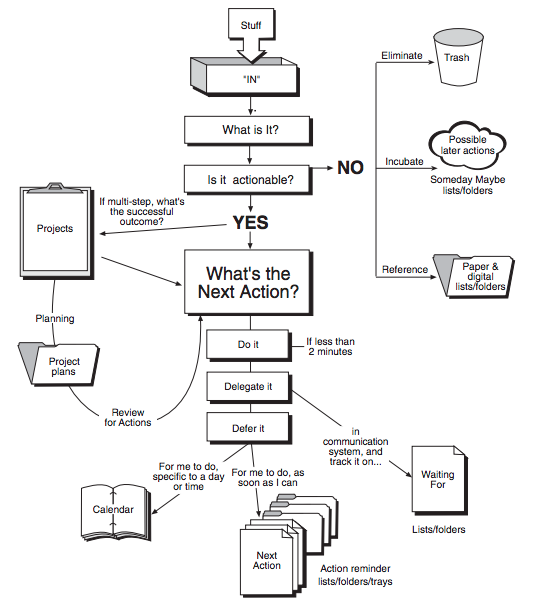

If you see it as ‘today’ rather than on your calendar for sometime in the future, you’re not going to put it off.” “So when I think in a more granular way - when I use days rather than years - it makes me feel like the future is closer.

“The simplified message that we learned in these studies is if the future doesn’t feel imminent, then even if it’s important, people won’t start working on their goals,” says Daphna Oyserman, lead researcher and co-director of the USC Dornsife Mind and Society Center. Participants were found by researchers to begin planning to start saving four times sooner when they thought of the event’s timing in days instead of years. In the second case, the participants were told retirement would begin 30 or 40 years in the future, or in 10,950 days or in 14,600 days. In the first case, participants were told college would start 18 years or 6,570 days in the future.
#Tips getting things done series#
In the second series of studies, over 1,100 participants were asked when they would start to save money for college or retirement. Participants who thought of the event in terms of days reported that the event would occur on average 29.6 days sooner than those who thought of the event as months away. In the first set of studies, 162 participants had to imagine themselves preparing for future events, such as a wedding or a work presentation.

Research out of the University of Southern California and published in the journal Psychological Science has found a seemingly simple way to beat procrastination that requires some brain power: think of the future in terms of days away rather than months or years. Thankfully, researchers didn’t put off their work for another time and completed studies with useful brain-based strategies to help you get stuff done. Sometimes, there are good reasons to put things off - maybe you really do need a break or better information will be available later - but in most cases, procrastination can end up hurting you and your productivity. “Why do it now when it can be done tomorrow?”


 0 kommentar(er)
0 kommentar(er)
